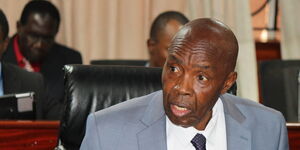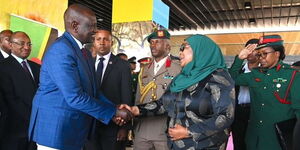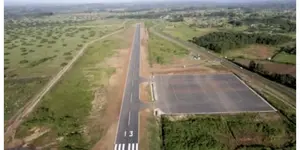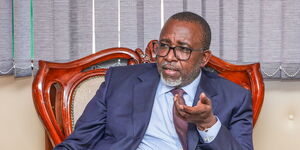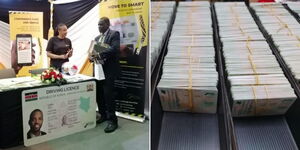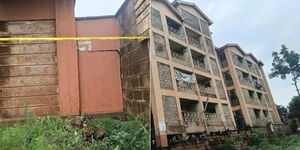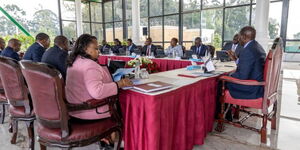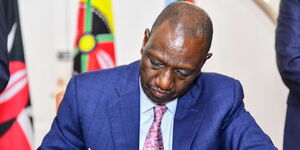Tensions escalated in the ongoing controversy surrounding the sale of supposedly fake fertiliser, as the Kenya Bureau of Standards (KEBS) refuted claims of involvement in testing the products distributed under President William Ruto’s subsidy programme.
Appearing before the Senate Standing Committee on the Distribution of Fake Fertiliser on Friday, April 19, KEBS CEO Esther Ngari asserted the bureau’s non-involvement, contradicting earlier statements from Agriculture Cabinet Secretary Mithika Linturi.
“In the entire process of tendering and procurement of the fertiliser under the subsidy programme, KEBS was not involved at all,” Ngari stated emphatically.
The hearing comes in the wake of accusations by CS Linturi ten days ago, alleging KEBS's responsibility for the circulation of substandard fertiliser in the market.
Linturi had told the Senate Agriculture Committee that the blame squarely fell on KEBS, though he differentiated between "fake" and "substandard" products. “If the percentage of nutrients does not meet the required levels, this does not mean the fertiliser is fake,” Linturi argued.
KEBS involvement, as described by Ngari, was limited to a request made on March 22 to verify the quality of fertiliser sold under the National Cereals and Produce Board (NCPB), which suggests no prior engagement in the testing processes before this date.
The debate over fertiliser quality intensified as KEBS reported earlier this month that 5,840 bags of fake fertiliser had been impounded nationwide. This statement stands in stark contrast to the ongoing narrative provided by the Agriculture Ministry, with Linturi acknowledging issues with 3,000 bags, of which 516 have been reclaimed and are currently undergoing testing by the Kenya Revenue Authority.
In a dramatic turn of events, the scandal has already resulted in the suspension of eight KEBS officials. These individuals were interdicted due to their alleged involvement in the issuance of certification and quality marks to two companies linked to the sub-standard fertiliser.
President Ruto’s administration remains steadfast in its commitment to distributing 12.5 million bags of subsidised fertiliser to farmers across the country, particularly with the long rainy season approaching.
In August last year, Ruto announced a Ksh12 billion investment in fertiliser subsidies, aimed at eliminating the middlemen or "cartels" previously implicated in the distribution chain. “We have fully done away with fertiliser brokers in order to fully be aware of who is receiving them and in what quantity," Ruto stated, highlighting the government's efforts to ensure transparency and efficiency.
According to the Ministry of Agriculture and Livestock Development, approximately 3.5 million 50 kg bags of subsidised fertiliser have been distributed in 41 of the country’s 47 counties since the inception of the National Fertiliser Subsidy Programme (NFSP) through to July 30, 2023.
Amid these revelations, some lawmakers are intensifying their scrutiny and calling for further accountability, particularly targeting CS Mithika Linturi.


